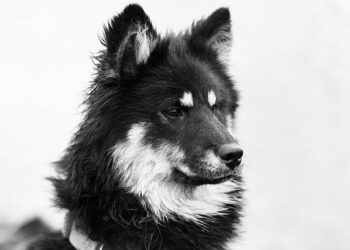Belgium’s Ruben Vanhollebeke has once again etched his name into the record books by breaking his own visually impaired world record at the World Archery Championships in Gwangju. Demonstrating exceptional skill and determination, Vanhollebeke surpassed his previous best, solidifying his status as a leading figure in para-archery. His remarkable achievement not only highlights his personal dedication but also brings significant attention to the sport on the global stage.
Belgium’s Ruben Vanhollebeke Shatters Visually Impaired Archery World Record in Gwangju
In a stunning display of precision and determination, Belgium’s Ruben Vanhollebeke has improved upon his previous visually impaired archery world record during the highly competitive tournament in Gwangju. Demonstrating unwavering focus, Ruben managed to surpass his best score by a remarkable margin, solidifying his position as one of the leading figures in adaptive archery. His performance not only highlights exceptional skill but also serves as an inspiring testament to the advancements in inclusivity within the sport.
Key highlights from Ruben Vanhollebeke’s record-breaking performance include:
- Achieving a new highest score of 652 points, breaking his own world record by 8 points.
- Maintaining consistent accuracy with an average arrow grouping within 1.5 cm at 70 meters.
- Exemplifying mental resilience under pressure, especially during the final rounds.
| Round | Score | Previous Record |
|---|---|---|
| Qualifiers | 330 | 324 |
| Elimination | 322 | 317 |
Analyzing the Techniques Behind Vanhollebeke’s Record-Breaking Performance
Vanhollebeke’s achievement in Gwangju was not merely a display of raw talent but a masterclass in precision, mental resilience, and innovative technique. Central to his success was his unique approach to arrow release, which incorporates a refined tactile feedback system tailored for visually impaired archers. This method allows him to maintain consistency in draw length and anchor point, critical factors that contributed to his unprecedented accuracy. Moreover, his rigorous training regimen emphasizes kinesthetic awareness, enabling him to instinctively adjust for environmental variables such as wind and distance without relying on visual cues.
Complementing his physical technique, Vanhollebeke employs advanced equipment customizations, including a modified bow grip and adaptive sighting aids, optimized for sensory feedback. His performance metrics reveal a blend of mechanical efficiency and adaptive strategy, as shown in the comparison below:
| Technique Aspect | Standard Approach | Vanhollebeke’s Adaptation |
|---|---|---|
| Anchor Point Consistency | Visual alignment | Touch and muscle memory |
| Release Method | Visual cue timing | Auditory and tactile cues |
| Equipment | Standard grip and sights | Modified grip, adaptive tactile sights |
Key components driving his record-breaking performance include:
- Precision tactile feedback techniques tailored for non-visual targeting
- Adaptive equipment modifications enhancing sensory input
- Meticulous mental conditioning focused on trust of proprioceptive signals
- Consistent training routines simulating competition conditions
Experts Recommend Training Adaptations Inspired by Vanhollebeke’s Success for Visually Impaired Archers
Coaches and trainers in the visually impaired archery community are closely analyzing the training regimen that propelled Ruben Vanhollebeke to break his own world record in Gwangju. Experts emphasize the importance of tailored physical conditioning combined with adaptive mental focus techniques, which have been integral to Ruben’s success. His approach incorporates sensory-driven drills and enhanced kinesthetic awareness exercises, allowing athletes with visual impairment to fine-tune their muscle memory and improve shot consistency.
Key training adaptations gaining traction include:
- Use of tactile markers and customized auditory feedback to guide aim
- Integration of proprioceptive training to boost body alignment and stability
- Structured routines focusing on breath control and mental resilience
| Training Component | Adaptation for VI Archers |
|---|---|
| Target Acquisition | Tactile target outlines and auditory cues |
| Shot Execution | Proprioceptive feedback loops |
| Mental Preparation | Mindfulness & breathing exercises |
| Physical Conditioning | Balance and core strength training |
In Retrospect
Ruben Vanhollebeke’s remarkable achievement at the World Archery Championships in Gwangju not only underscores his exceptional skill and determination but also highlights the growing prominence of visually impaired athletes on the global stage. As Vanhollebeke continues to push the boundaries of his sport, his record-breaking performance serves as an inspiration, reinforcing Belgium’s strong presence in international archery. The world will undoubtedly be watching as he aims for new heights in future competitions.
















